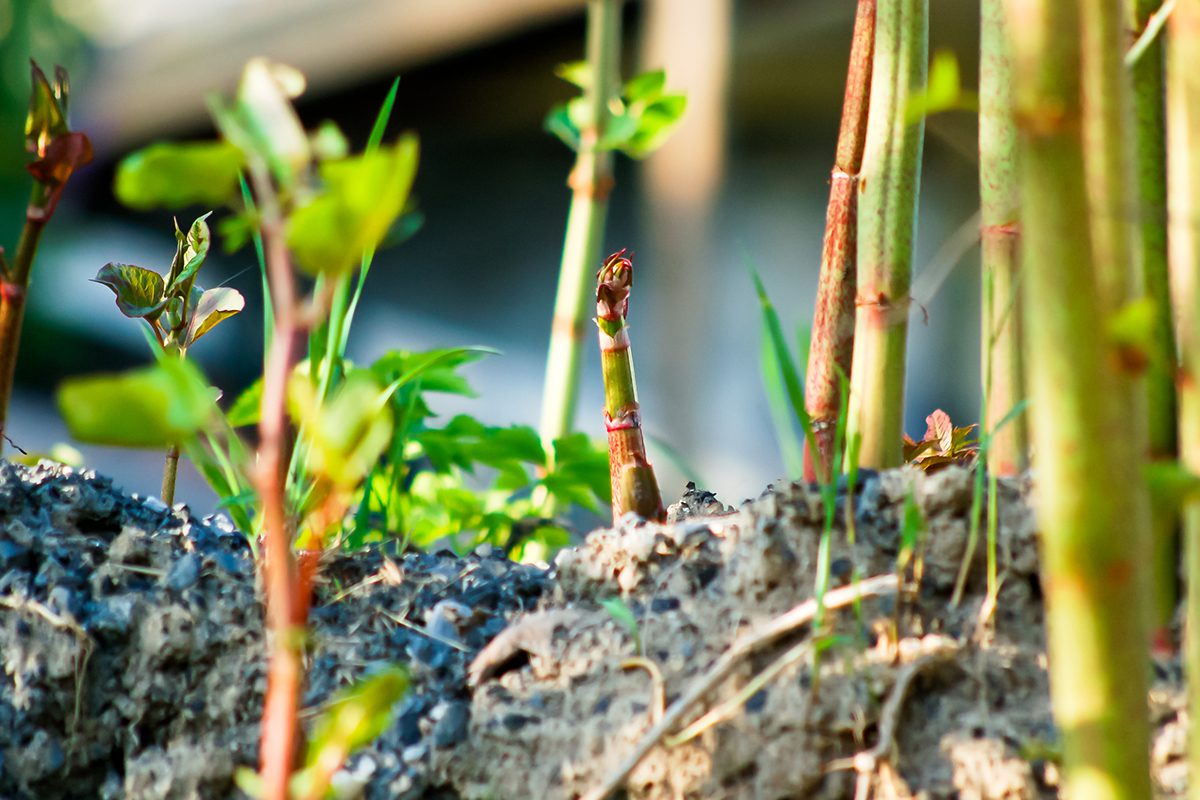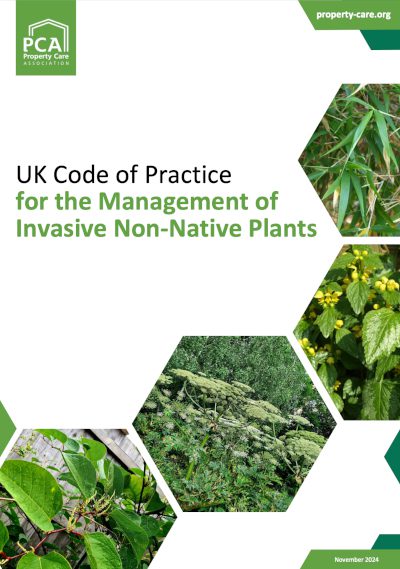
National trade body the Property Care Association has produced a 360° overview of all elements involved in the management of invasive weed control in its new Code of Practice.
The ‘UK Code of Practice for the Management of Invasive Non-Native Plants’ offers a single point of reference for invasive weed control professionals, operating across a range of sites, including gardens, development sites, agriculture, forestry, infrastructure, local authority areas and river catchments.
It also provides a useful reference point for planners, developers, environmental groups and surveyors – as well as utilities, local government and transport sector specialists – with a remit to develop and maintain invasive weed control strategies.
The code of practice has been overseen by Daniel Docking, the PCA’s Invasive Weed Control Technical Manager.

He said: “Effectively managing invasive non-native plants demands a holistic approach that integrates scientific knowledge, strategic planning, and coordinated interventions.
“This entails understanding the biology, behaviour, and lifecycles of these species, implementing preventive measures to curtail their spread, and deploying targeted and sustainable control strategies tailored to specific habitats and plant species.
“The Code of Practice serves as a comprehensive manual for professionals engaged in invasive non-native plant management, offering vital insights, best practices, and standardised procedures.
“By adhering to the guidelines within this document, practitioners can improve their effectiveness in suppressing invasive non-native plants, mitigating environmental harm, and safeguarding the ecological integrity of diverse environments.
“The Code of Practice sets out the negative environmental impacts of invasive non-native plants, specifically for terrestrial plants, including disrupting habitats and ecosystems, out-competing desired vegetation for resources including sunlight, water, and nutrients, reducing biodiversity, spreading disease, and interfering with the genetic integrity of native flora.
“Whilst Japanese Knotweed alone is estimated to cost the British economy around £247 million per year, there is a growing requirement to expand and share knowledge to prevent lesser-known species from becoming a burden to sectors including forestry, transport, energy, construction, aquaculture, recreation, and utilities.
“Some invasive non-native plants can also impact human health by exacerbating allergies, creating breeding grounds for disease-carrying organisms through poisoning, and posing physical hazards such as obstructing waterways and exacerbating flooding or increasing the risk of wildfires.”
Intended for use in England, Northern Ireland, Scotland and Wales, the Code of Practice has been informed by the Great Britain Invasive Non-Native Species Strategy 2023 to 2030 produced by the Department for Environment, Food & Rural Affairs (Defra), Welsh Government and the Scottish Government.
The information included conforms to, or improves on, recommendations provided by the Environment Agency (EA) Invasive Species Ireland, the Royal Institution of Chartered Surveyors (RICS), the Scottish Environment Protection Agency (SEPA), and Natural Resources Wales (NRW) for the survey and management of invasive non-native plants.
Daniel Docking added: “In line with legislation, we have a responsibility to minimise the spread of invasive non-native plants, to ensure the UK’s biodiversity is maintained for future generations to enjoy.
“The Code of Practice is an important document in tackling this challenge, setting out the competency standards and procedures to deliver real impact in addressing the issue.”
More details on the guide can be found at UK Code of Practice for the Management of Invasive Non-Native Plants.
It will also be available at the PCA’s 2024 International Invasive Weed Conference (IIWC2024), which takes place at the University of Warwick, Coventry, on November 28.
https://www.property-care.org/events/conferences/2024-invasive-weed-conference/17690







